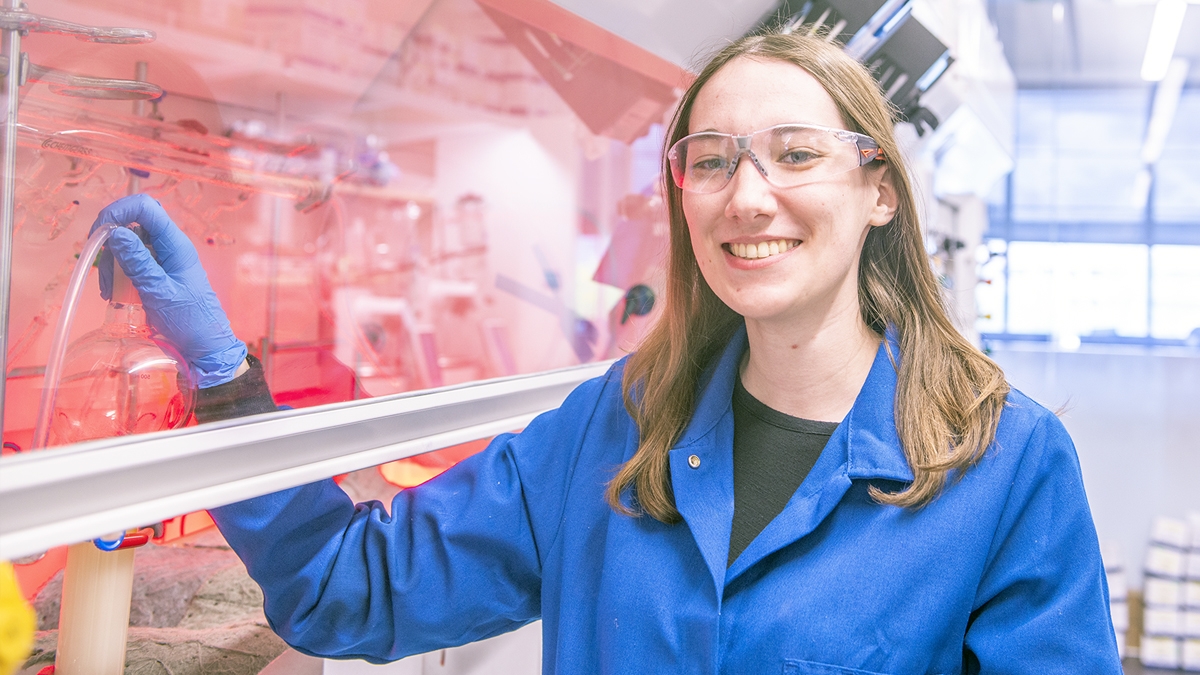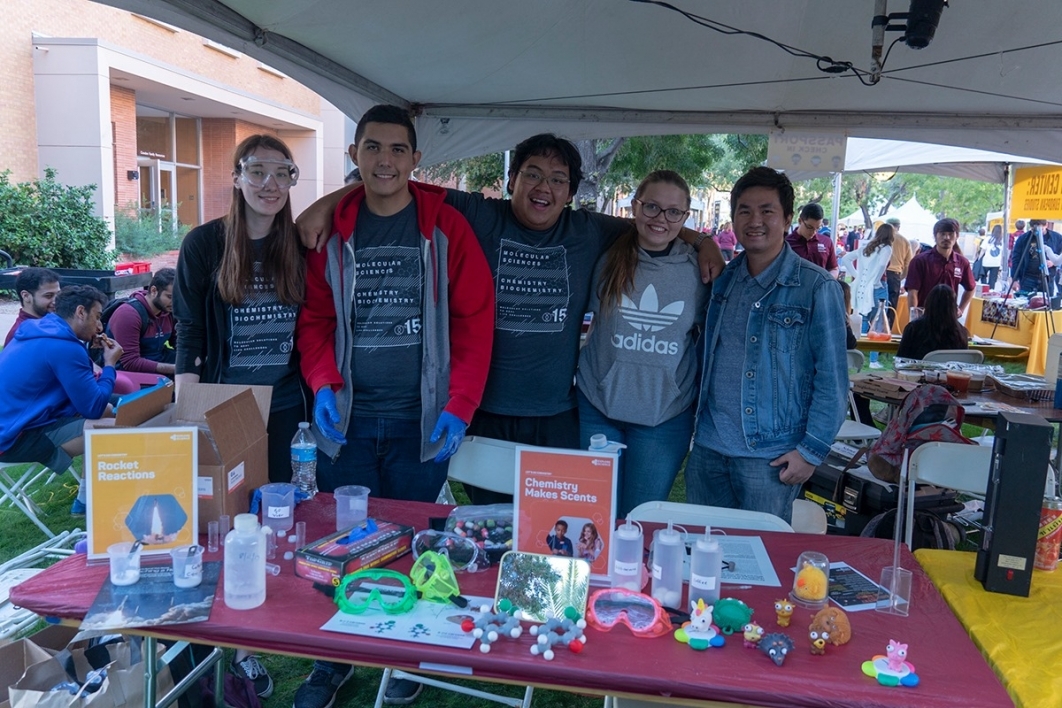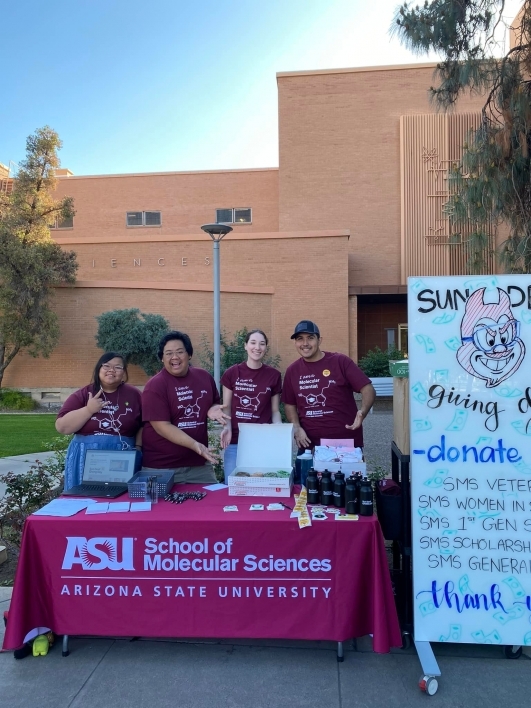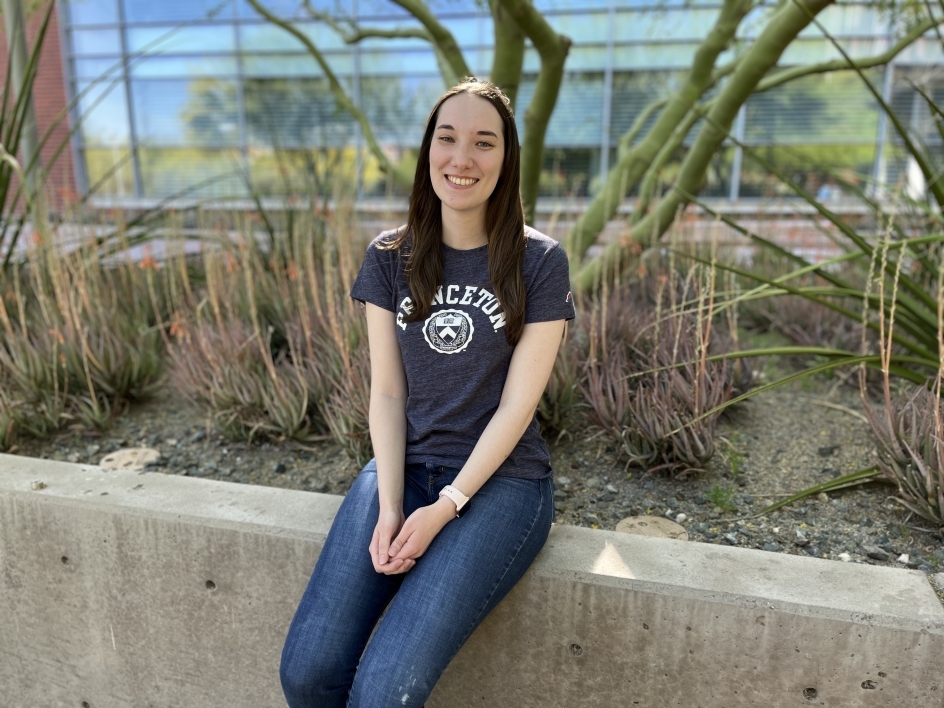Love of organic chemistry drives ASU graduate

Lauren Harstad is graduating with a double major in chemistry and biological sciences. Photo by Mary Zhu
Editor’s note: This story is part of a series of profiles of notable spring 2023 graduates.
When Lauren Harstad was attending Eldorado High School in Albuquerque, New Mexico, she took AP biology. She fell in love with a section called biochemistry. However, she soon realized what she really liked was organic molecules and finding out how they work.
“A lot of biochemistry is just organic chemistry and biological systems, so pretty soon after I arrived at ASU I found out I didn't want to do the biochemistry part, and I switched to a chemistry major,” Harstad said.
Harstad explained that Arizona State University is special in that first-year students are welcomed into professors’ labs to conduct research. She loves the fact that professors are willing to take on relatively inexperienced students.
“Lauren’s ability to accomplish all she has while continuously demonstrating the highest level of approachability and professionalism has been nothing short of inspiring to everyone around her,” said Assistant Professor Kyle Biegasiewicz from the School of Molecular Sciences. “Lauren has been an integral part of our research program, and her commitment, determination and passion for science has made her a truly special undergraduate to mentor. We are so proud of her accomplishments and can't wait to see all of the wonderful things she does in her graduate and professional career."
Harstad, a Barrett, The Honors College student, is about to graduate with many accolades to her name. She is earning a Bachelor of Science with a double major in chemistry and biological sciences, with a minor in mathematics. Harstad was recently presented with the 2023 Distinguished Chemistry Merit Award. She won a prestigious Goldwater Scholarship in 2022, as well as the Edward B. Skibo Memorial Scholarship in 2021.
As president of the Student Affiliates of the American Chemical Society, Harstad was involved with chemistry demonstrations at ASU Homecoming, ASU Open Door and her school's Fall Welcome.
Question: What was your “aha” moment when you realized you wanted to study the field you majored in?
Answer: I had always been interested in science in high school, but I knew I wanted to pursue a career in chemistry soon after I began taking lab classes at ASU, and especially after beginning work in a research lab. I was really drawn to the problem-solving aspect of research, and organic chemistry in particular just clicked with me.
Q: What’s something you learned while at ASU — in the classroom or otherwise — that surprised you or changed your perspective?
A: Before going to college, I didn’t realize how many career paths are opened up by a degree in the sciences. Chemistry is such a robust field full of exciting research, and it spans so many different industries beyond working in academia.
Q: Why did you choose ASU?
A: I chose ASU because of the focus on undergraduate research. I am very fortunate to have joined a research group during my first year at ASU, as this experience has been significant in encouraging me to attend graduate school and pursue a career as a research scientist.
Q: Which professor taught you the most important lesson while at ASU?
A: My research advisor Professor Biegasiewicz has been instrumental in helping me to realize my passion for organic chemistry. He has taught me the importance of working hard to achieve my goals and is always pushing me to do my best.
Q: What’s the best piece of advice you would give to students?
A: Get involved in opportunities beyond the classroom, whether through research positions, internships or anything else you find interesting! It’s easy to feel underqualified at first, especially if you don’t have any experience in a certain field, but having a good work ethic and attitude is just as important in landing that first position.
Q: What was your favorite spot on campus, whether for studying, meeting friends or just thinking about life?
A: When I need to clear my head, I often go for a walk through the open space near the Biodesign Institute. The area is full of trees and desert plants that make it a peaceful place to gain some perspective.
Q: What are your plans after graduation?
A: I will be pursuing a PhD in chemistry at Princeton University beginning this summer.
Q: If someone gave you $40 million to solve one problem on our planet, what would you tackle?
A: I believe there is a need for more research focused on non-addictive forms of pain relief. The opioid epidemic is a problem that has affected so many families in the U.S., and I am hopeful that science will one day find a more promising alternative to these substances.
More Science and technology

Applying AI to microelectronics manufacturing
Rivers flow across the planet’s surface, carving deep valleys and intricate canyons. Likewise, makers of microelectronics direct…

Applied Materials invests in ASU to advance technology for a brighter future
For nearly 60 years, global giant Applied Materials has been hard at work engineering technology that continues to change how…

Meet ASU engineering students who are improving health care, computing and more
Furthering knowledge of water resource management, increasing the efficiency of manufacturing point-of-care health diagnostic…




